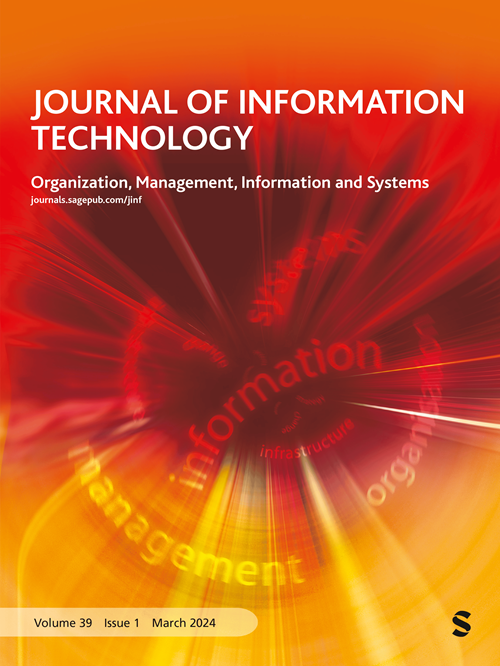A Temporal Dynamics Framework and Methodology for Computationally Intensive Social Media Research
IF 5.4
3区 管理学
Q1 COMPUTER SCIENCE, INFORMATION SYSTEMS
引用次数: 0
Abstract
The growing availability of expansive social media trace data (SMTD) offers researchers promising opportunities to create rich depictions of societal and social phenomena. Despite this potential, research analysing such datasets often struggles to construct novel theoretical insight. This paper argues that holistically incorporating temporality enhances data collection and data analysis, thereby facilitating process theory construction from SMTD. Recommendations to integrate temporality are outlined in the proposed Temporal Dynamics Framework and Methodology (TDFM). We apply the TDFM to investigate the temporal dynamics of mental health discourse on Twitter (now X) across different phases of the COVID-19 pandemic, theoretically framed in the context of innate psychological needs satisfaction. The findings reveal dynamic shifts in social media use, indicating that different phases of the pandemic triggered dynamic shifts in the needs motivating, and being motivated by, social media use. This illustrative case reflectively evaluates the usefulness of the TDFM in contextualising SMTD collection, analytical strategies, and process theory construction by incorporating a dynamic perspective on time.用于计算密集型社交媒体研究的时态动力学框架和方法论
日益广泛的社交媒体痕迹数据(SMTD)为研究人员创造丰富的社会和社会现象描述提供了大有可为的机会。尽管潜力巨大,但分析此类数据集的研究往往难以构建新颖的理论见解。本文认为,从整体上融入时间性可以加强数据收集和数据分析,从而促进从 SMTD 中构建过程理论。本文提出的 "时间动力学框架与方法"(TDFM)概述了整合时间性的建议。我们运用 TDFM 研究了 Twitter(现在的 X)上的心理健康言论在 COVID-19 大流行的不同阶段的时间动态,并以先天心理需求满足为理论框架。研究结果揭示了社交媒体使用的动态变化,表明大流行病的不同阶段引发了社交媒体使用动机和动机需求的动态变化。这一说明性案例通过纳入时间动态视角,对 TDFM 在 SMTD 收集、分析策略和过程理论构建方面的有用性进行了反思性评估。
本文章由计算机程序翻译,如有差异,请以英文原文为准。
求助全文
约1分钟内获得全文
求助全文
来源期刊

Journal of Information Technology
工程技术-计算机:信息系统
CiteScore
10.00
自引率
1.80%
发文量
19
审稿时长
>12 weeks
期刊介绍:
The aim of the Journal of Information Technology (JIT) is to provide academically robust papers, research, critical reviews and opinions on the organisational, social and management issues associated with significant information-based technologies. It is designed to be read by academics, scholars, advanced students, reflective practitioners, and those seeking an update on current experience and future prospects in relation to contemporary information and communications technology themes.
JIT focuses on new research addressing technology and the management of IT, including strategy, change, infrastructure, human resources, sourcing, system development and implementation, communications, technology developments, technology futures, national policies and standards. It also publishes articles that advance our understanding and application of research approaches and methods.
 求助内容:
求助内容: 应助结果提醒方式:
应助结果提醒方式:


